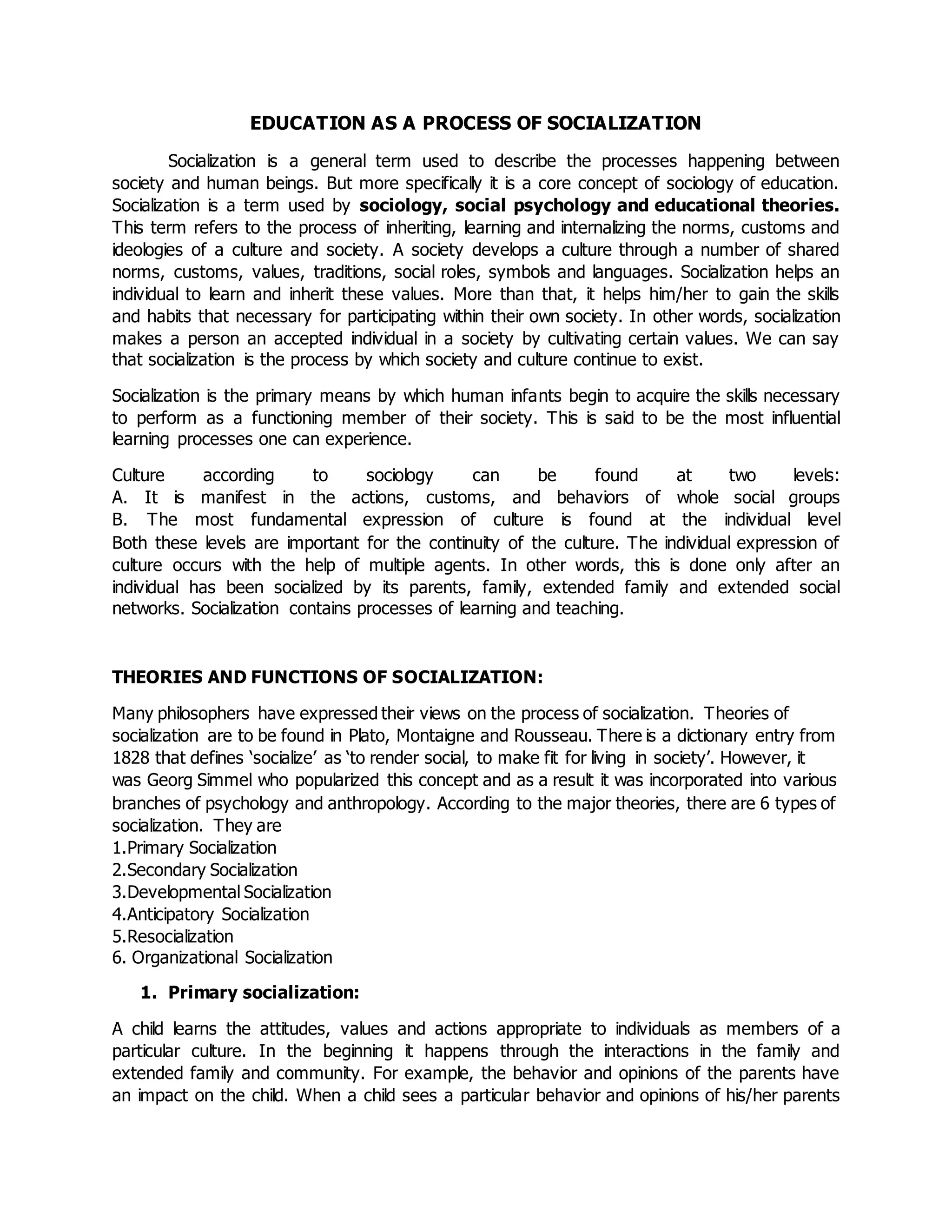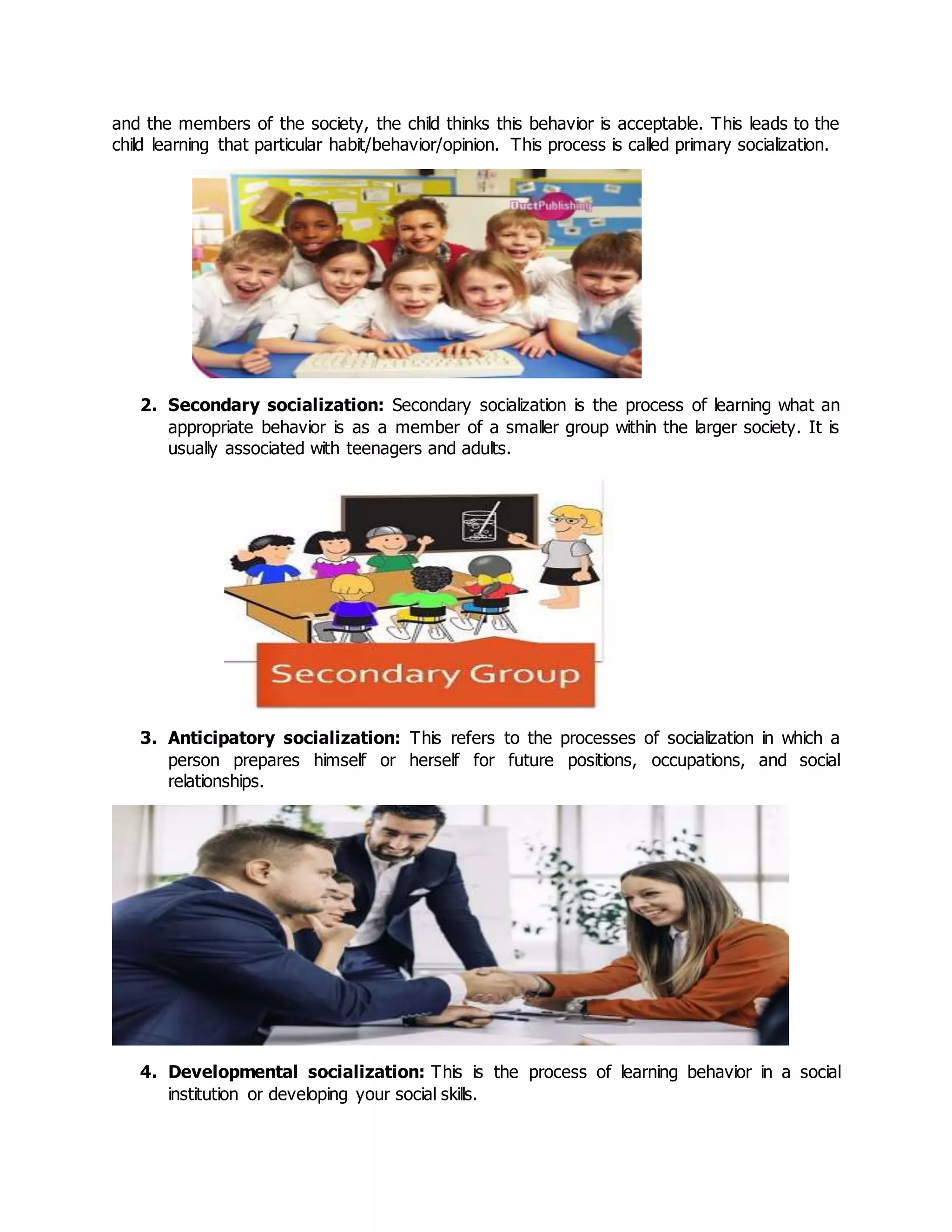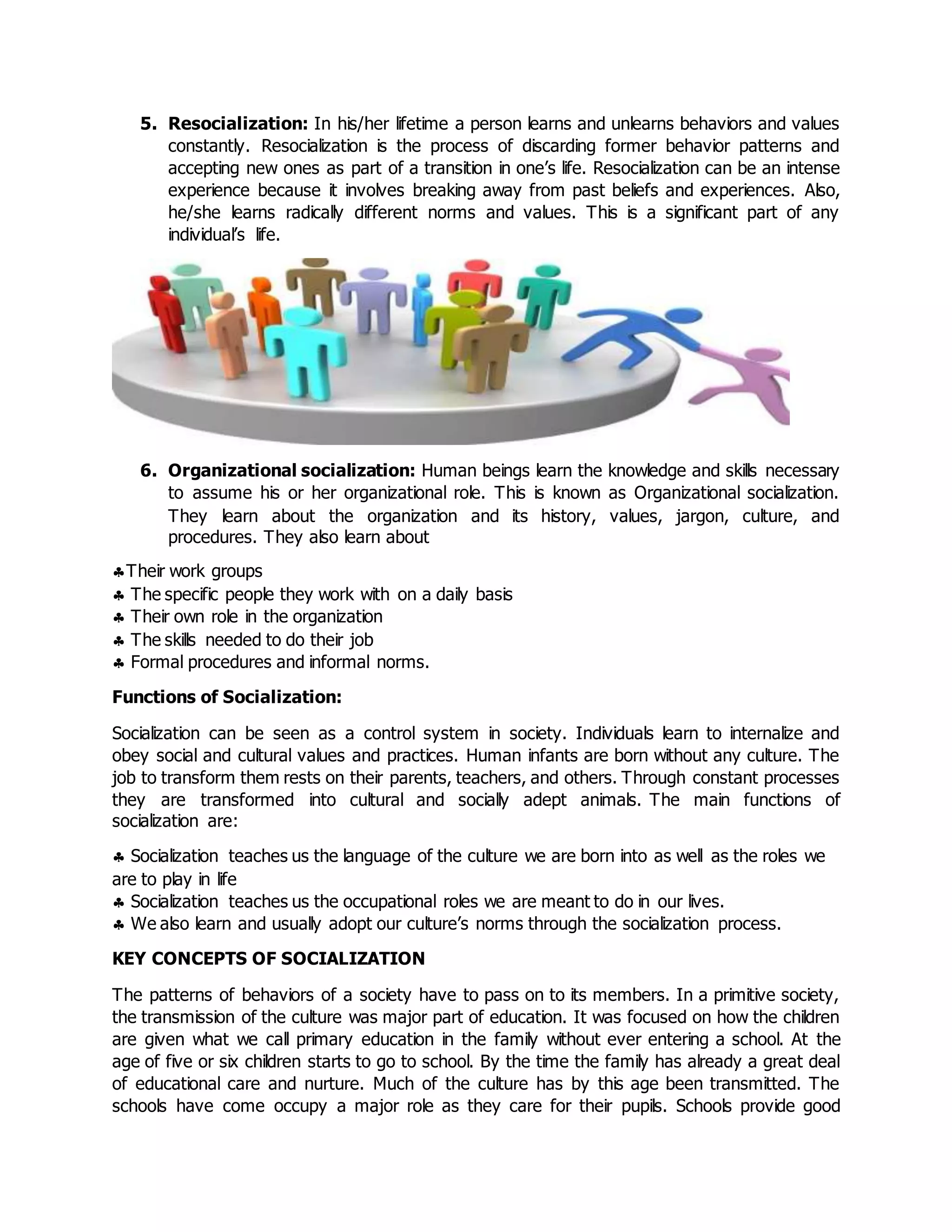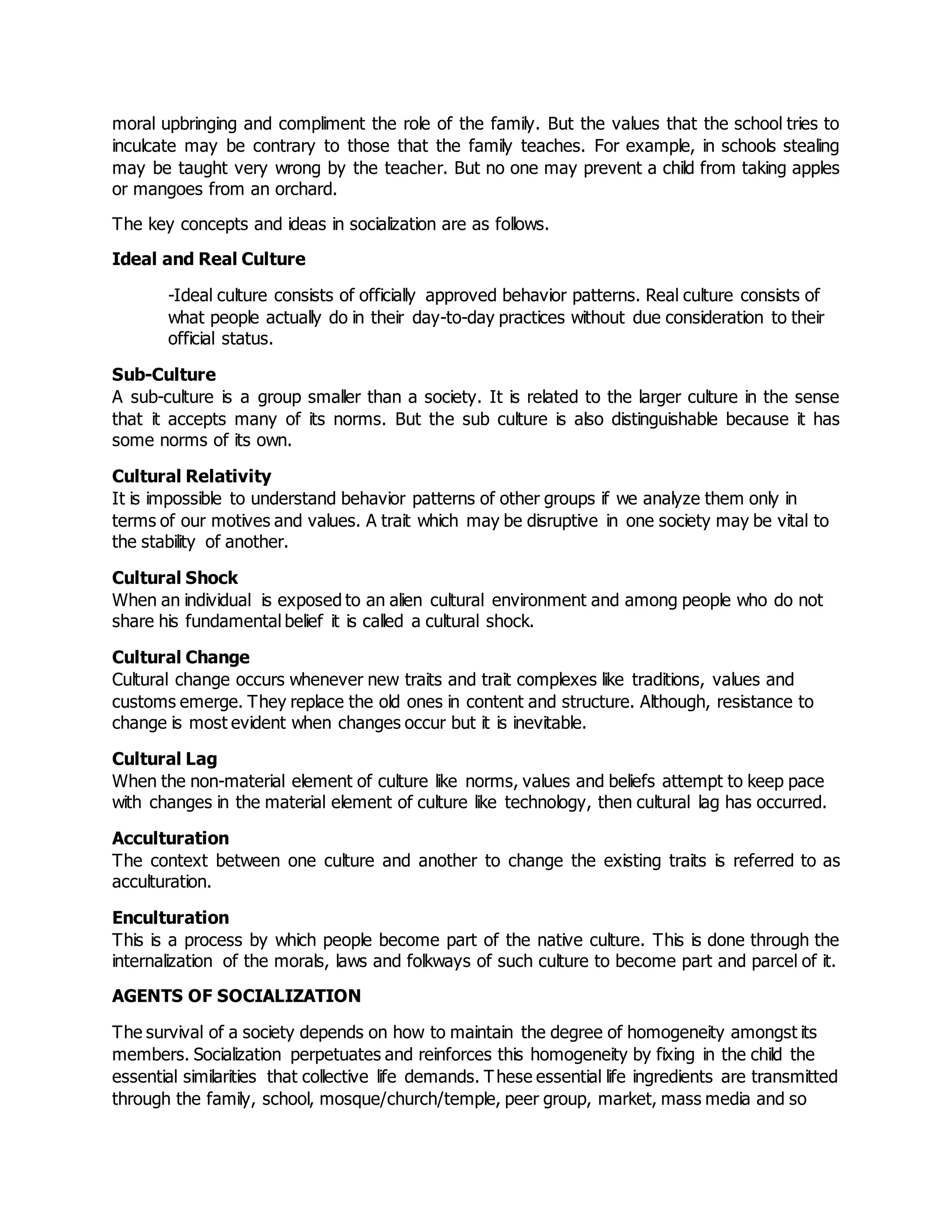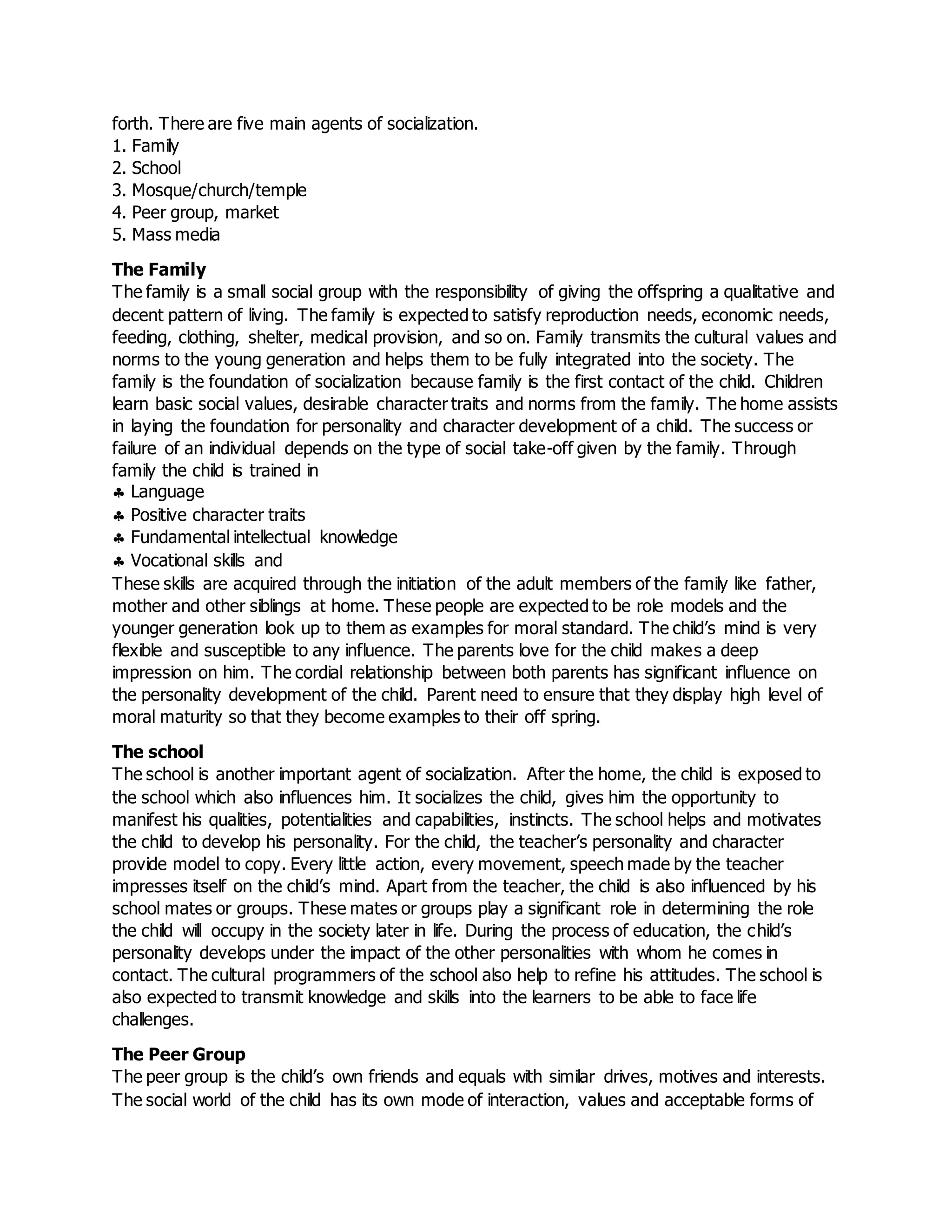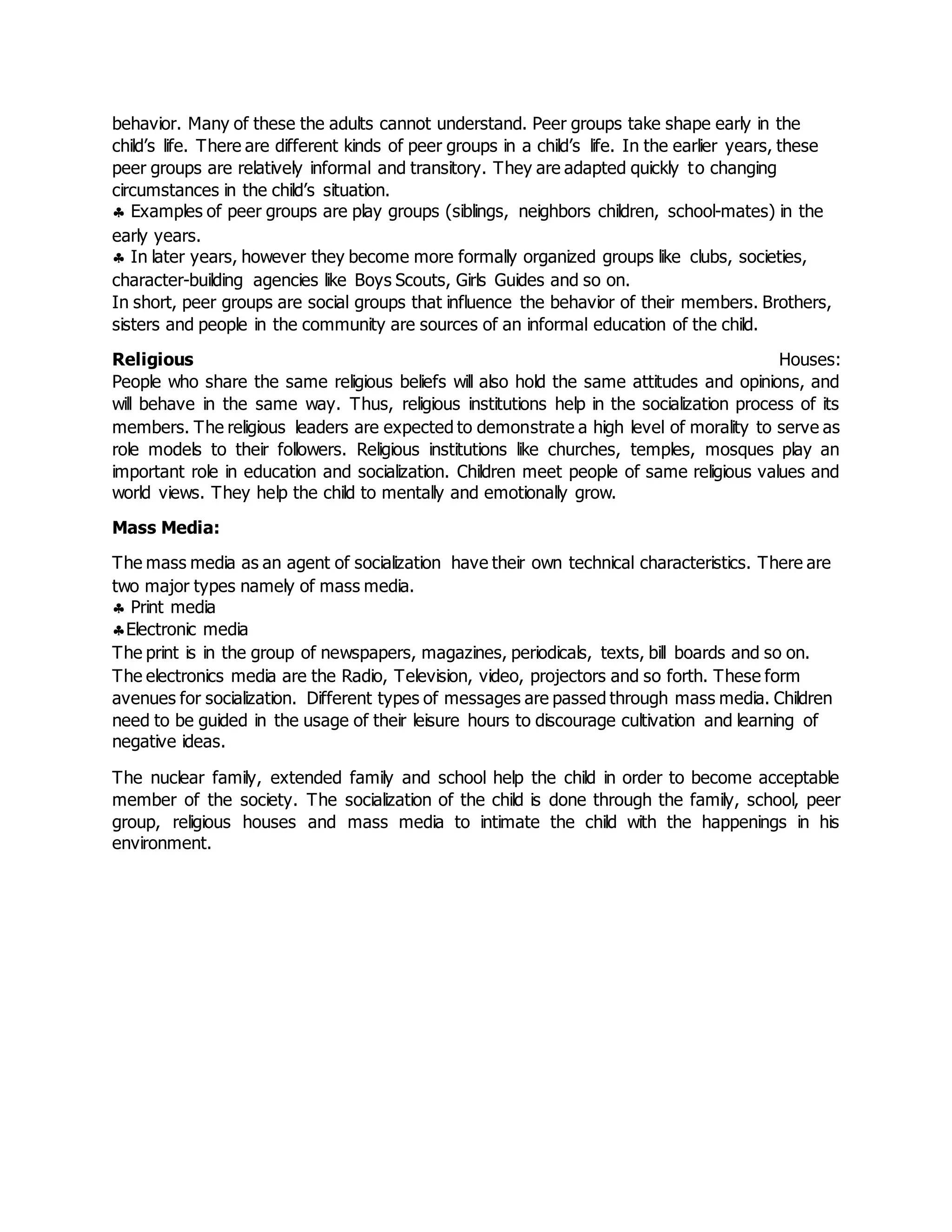Socialization is the process through which individuals learn the norms, values, behaviors, and social roles of their culture and society. There are several key agents of socialization, including family, school, peer groups, religious institutions, and mass media. These socializing agents teach individuals the culture and help socialize them starting from childhood through various processes like primary socialization by family, secondary socialization in school, and continued socialization through peer groups and mass media.
